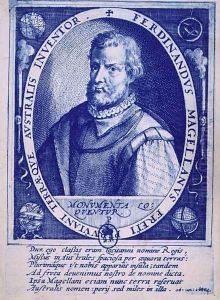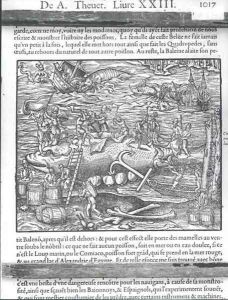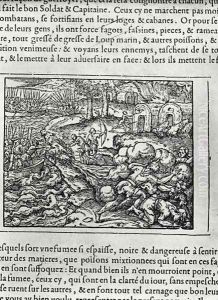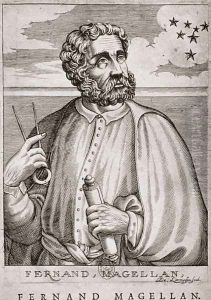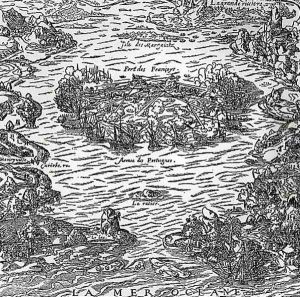Andre Thevet Paintings
André Thevet was a French explorer, cosmographer, and writer born in Angoulême, France, in 1516. His career was a remarkable blend of exploration and scholarship, making significant contributions to geographic and ethnographic knowledge in the 16th century. Thevet's travels took him to various parts of the world, including the Middle East, Brazil, and possibly other regions of South America, where he collected a vast amount of information on the geography, flora, fauna, and peoples he encountered.
Thevet is best known for his work 'Les Singularitez de la France Antarctique' (1557), which provides one of the earliest detailed descriptions of Brazil and its indigenous peoples, as well as the natural environment. This work, based on his voyage to Brazil in 1555 as a chaplain with the French expedition to Rio de Janeiro, established his reputation as a leading cosmographer of his time. Although some scholars have critiqued Thevet for inaccuracies and for relying on second-hand accounts for some of his descriptions, his contributions to the early European understanding of the New World are undeniable.
Throughout his life, Thevet held various positions that allowed him to pursue his scholarly interests, including serving as the royal cosmographer to King Charles IX of France. In this capacity, he had access to a wide range of cartographic materials and exploratory reports, which he incorporated into his later works. His other notable publications include 'La Cosmographie universelle' (1575), an ambitious attempt to describe the whole world's geography and cultures, drawing not only on his experiences but also on a comprehensive collection of maps, travel narratives, and other sources.
Thevet's work, despite its occasional inaccuracies, provides valuable insights into the 16th-century world view and the early stages of the European encounter with the Americas. His detailed observations, particularly of Brazil, have been of enduring interest to historians, geographers, and anthropologists. André Thevet passed away in Paris in 1590, leaving behind a legacy as one of the Renaissance's most intriguing and informative cosmographers and explorers.
